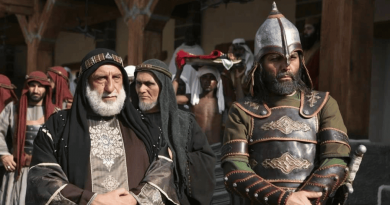ANALYSIS: Britain, and the terrorists Hamas and Muslim Brotherhood
by Abdullah Bajad Al-Otaibi
Brotherhood has provided and continues to provide dangerous services to all these hostile projects.
The British decision to classify the Brotherhood Hamas as a terrorist movement is an important decision, albeit belated and defective.
By all accounts, the movement is terrorist as a religious ideology, a political movement and an organization. Its terrorism is mainly focused on the Palestinian people in Gaza, which it rules with an iron fist, and then on the Arab countries.
The movement targets security and stability of the Arab countries, and that is in alliance with some regional countries which have extremist expansionist projects.
Does classifying Hamas as terrorist outfit mean that the Palestinian cause is also terrorism? The answer is certainly no.
The Palestinian cause is just and supported by all the Arab countries that are hostile to the Hamas movement, especially Egypt, despite the fact that Hamas has spared no effort in targeting Egypt’s security and stability, apart from smuggling weapons to it, storming its prisons and engaging in many other hostile behaviors.
As per the statements of Hamas leaders, the movement does not recognize the state of Palestine or its borders. Rather, it considers itself as a larger international movement than that, and entertaining parties of some ideological leaders that target the security, safety and life of Arab peoples.
The British decision came late because Hamas’ terrorism is old and its crimes date back long time. The decision is also defective because it is supposed to have included the entire Brotherhood outfit with all its branches, not just the Palestine branch, but Britain does not want confrontation with the Brotherhood and political Islam groups after it has had invested in them for decades.
Britain’s relations with the Brotherhood have been in force until to date, and UK’s support for it is continuing. The provision of safe havens, comfortable investments, and supportive institutions tells endless details of this relationship.
There has been long-term British investment in political Islam groups, and it is still the country from where Ibrahim Munir is leading his Egyptian Brotherhood’s infighting with the Istanbul group of Brotherhood associated with Mahmoud Hussein.
The Brotherhood, along with political Islam groups, is a model for betrayal and the fifth column. It involved along with some Western countries in targeting Arab states, and what happened in the so called “Arab Spring” was an obvious example for this constant betrayal in the group’s approach.
But the group hides it all in the name of religion and Islam and other religious slogans with which it wants to throw dust in the eyes of others.
Moreover, the Brotherhood group is involved in the regional projects of some non-Arab countries, which target Arab countries and seek to pull them down and enslave, kill and exterminate their people. Brotherhood has provided and continues to provide dangerous services to all these hostile projects.
These groups and their symbols and elements have continued to betray as they have a religious, political, and moral system to justify their misdeeds through multiple ways.
Any researcher, who observes some Western “human rights”, “research” and “media” institutions that target Arab countries, can find that they are all grafted with elements, which belong organizationally and intellectually to political Islam groups and they do not find it embarrassing to target their countries, leaders and peoples, and to harm the interests of their peoples, even if it is with claims of defending them.
The Western investment in political Islam movements brought many historical “catastrophes” to Islamic and Arab countries. Leaders of these movements and organizations used to return from Western exile to rule their countries when they succeeded in spreading chaos and terrorism until the moment of their failure. There are many and varied examples for this.
Abdullah bin Bijad al-Otaibi is a Saudi writer and researcher. He is a member of the board of advisors at Al-Mesbar Studies and Research Center. He tweets under @abdullahbjad.
This article first published in Arabic by Al-Ittihad newspaper, and translated by Saudi Gazette.



